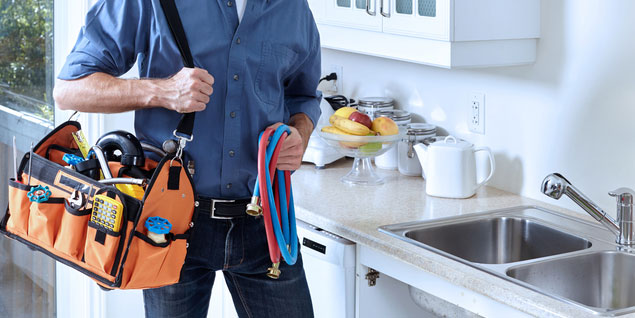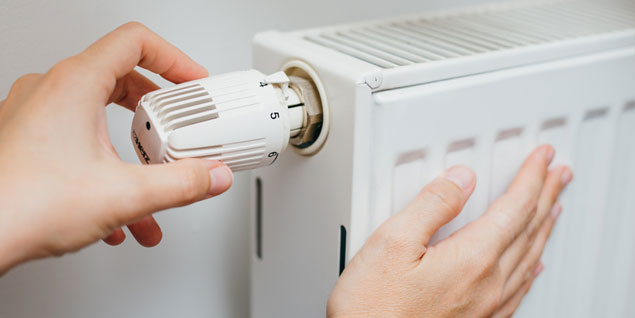How Much Does it Cost to Power Flush Your Heating System?
Last Updated on By Jon
Power flushing your system is a simple way to maximise the efficiency of your heating system. In this guide we'll discuss the benefits, the procedure itself and of course how much it costs to powerflush your heating system in 2025.

Average power flush costs
To begin with, lets take a look at some average prices for power flushing your system:
| No. Radiators | Average Price | Duration |
|---|---|---|
| 4 | £232.50 | 5 hours |
| 5 | £255.75 | 5 hours |
| 6 | £279.00 | 6 hours |
| 7 | £372.00 | 6 hours |
| 8 | £418.50 | 7 hours |
| 9 | £455.70 | 7 hours |
| 10 | £492.90 | 8 hours |
| 11 | £520.80 | 1 day |
| 12 | £548.70 | 1 day |
| 13 | £576.60 | 1+ day |
| 14 | £604.50 | 1+ day |
| 15 | £632.40 | 1+ day |
(Prices taken from multiple sources and averaged) Prices Checked 16/07/2025 |
||
Power Flush Cost Calculator
Factors That Affect the Cost of a Power Flush
Location
If you live in the South East of the UK you will be well aware that services (and everything else!) cost more than in the North. Assuming you're in the call-out radius of your chosen engineer you can expect to pay around 20% more than someone living further up the country. Though more expensive, this is typically in line with higher living costs.
Additional repairs
Having your heating flushed can expose other faults that need addressing. Leaks or underperforming components may present themselves and need repairing. Though an unwelcomed expense, having a heating engineer on site to carry out the repairs can be beneficial.
Severity of the build-up
Depending on how long your system has been left to gather sludge, limescale or rust will have an impact on the duration of the clean (and therefore the cost). With most plumbing engineers charging per day, you may find your flush extends to another morning. It can pay to arrange a fixed fee for the power flush so there are no surprises.
New or replacement magnetic filter
If your system doesn't have a magnetic filter, it makes perfect sense to add one after a flush. This will continue to protect your system by collecting any metallic particles and preventing build-up. Expect to pay anything around £204.60 for a new filter fitted.
Size / Number of Radiators
Quite simply the larger the system the longer the process will take which in turn will directly influence the price. A standard 3 bedroom house may take around 6 hours wheras a 5-6 bedroom property could take more than a day to fully flush.
Micro-bore pipework
It is possible to power flush a micro-bore heating system however it is a more complicated process that takes longer (and will therefore cost more). Power flushing relies on there being a minimal amount of flow to begin with, and smaller bore pipes can clog completely. In order to proceed with the flush, the blockages need to be found and manually cleared which can add significantly to the time. The flowrate of the clean also needs to be reduced wchin adds to the overall time. Although small-bore pipes present additional challnges, there are many companies that will happily clean them, and the results are very successful.
Sealed Or Open Vented System
If you have an open-vented system, then you can expect to pay more. A sealed system will not have a Feed and Expansion tank (whereas an open-vented system will likely have one in the attic). This unfortunately can add as much as £250-300 on top of the price.
Get Free Power Flushing Quotes OnlineWhat is power flushing?
Central heating power flushing is a process used to restore the efficiency of a central heating system. It involves removing any buildup of rust, sludge and limescale from the system which when left to build up over time can cause it to become less efficient.
The process involves pumping a specially formulated cleaning solution through the system at a high pressure, which breaks down any deposits and flushes them away. This allows for the efficient flow of hot water and heat around the system, restoring its efficiency and prolonging its lifespan.
Power flushing also helps to reduce noise levels in a central heating system, as well as reducing energy bills by ensuring that the boiler does not have to work as hard to circulate hot water throughout the home.
The result is that your radiators will heat much more quickly and efficiently and the water within will be clear.

What are the benefits?
The benefits of flushing your heating system can be substantial and immediate. Here are just a few:
Balance water pressure
You may be experiencing a loss of pressure due to the sludge build-up throughout your pipes. This increases the stain placed on boiler components as they are working at a less than optimal pressure. A clean, resistance-free pipe network will allow your system to re-pressurise and operate as it was intended.
Better hot water quality
Clean pipes equal clean water. You may notice a difference in your hot water quality after the powerflushing is complete as sludge and limescale is removed.
Consistent heating temperatures
If blockages within your pipework are causing circulation issues within your heating system then you will notice cold spots on your radiators. Without adequate flow your home won't be able to reach maximum temperature.
Quiter performance
A heating system that must work harder to force water through clogged pipework will likley be noisier than intended. You can enjoy a quieter performing system after flushing.
Reduced energy bills
An efficiently running heating system will require far less fuel to heat a building. If your system must work harder to create the same amount of heat due to clogged pipework then you can expect your energy bills to be higher.
Increased reliability
Clear pipes reduce the strain placed on boiler water pumps and other parts of your heating system. Therefore you should be able to save on further work, and costly breakdowns requiring repairs and replacement parts will be reduced considerably.
When should I get a power flush?
There are several occasions where it is recommended to power flush your heating system, not just when you start to notice some of the symptoms.
New house/move
If you have moved, and have no record of when your new system was last flushed then it's always a good idea to book one in. It's one less thing to worry about as you settle into your new home.
Heating repair work
Any type of repair work to your heating system can introduce deposits into the pipework. If the work you are undertaking requires the draining of the system. then it makes perfect sense to tie in a flush. If you already have a plumber on site doing the work, you should be able to save on the process too.
New or replacement boiler
If you're having a new boiler installed it is recommended that you get a power flush at the same time. Not only is this a convenient time to do it, but you may also find your boiler manufacturer requires one in order to validate the warrantee. There is little point installing a brand-new boiler into an underperforming pipework system.
Replacing radiators
Replacing or installing a new radiator? Now is the perfect time to clean out your system to ensure it operates efficiently and doesn't immediately start to deteriorate due to a soiled system.
New heating system
If you're having a completely new heating system installed including new pipe runs you may think a power flush is unnecessary. In this instance a flush is normally performed to ensure there has been no buildup left in the system from the installation process. This way you can guarantee optimum performance from day one.
Underperforming heating
If you've noticed cold spots on your radiators, or simply that your house isn't heating up as much as you think it should then this is a clear indicator that your system may be blocked.

Does My System Need a Power Flush?
So, we know the main benefits and when it's a good time to schedule a flush, but what are the signs you need one sooner rather than later? There's no point flushing a system that doesn't need it, and the chemicals can even be harmful to a clean system.
Underperforming heating
If your central heating system isn't getting up to temperature as quickly as it should, or maybe simply not reaching optimum temperature then these are signs that it is struggling. Though this could be for several reasons such as a failing water pump it could also be due to blockages throughout the system.
Noisy Boiler
If your boiler is making more noise than usual during normal operation, then it could be a sign that it is struggling to force water through a dirty system.
Pump Failure
One of the first mechanical parts to go when your pipes are compromised is the pump as the additional workload needed to force water through often causes too much strain. If your pump has failed and it's still relatively new, then this could be an indication of other issues in the system.
Dirty Radiator Water
A sure sign that your system is beginning to build up sludge is that dirty water is expelled when you bleed the radiators. When you open the valve at the top of the radiator you should be met with clean water once the air has cleared. If it is black, then there is clearly some build-up present.
Leaking System
The high water pressure created by having a blocked system can cause additiona stress to your pipework particularly at any soldered joints. This can cause leaks which may not have previously occurred.
Repeated Radiator Bleeding
Though bleeding your radiators isn't a hassle, if you find yourself doing it more than usual then the underlying cause might be due to reduced water flow caused by clogged pipes.
Radiator Cold Spots
If you've bled your radiators and are still getting cold spots then this can be a clear indication of a blockage which is preventing hot water from circulating. You may notice the cold spot is at the base of the radiator which contrasts with trapped air needing bleeding which is usually cold at the top.
What's the Process of Flushing Your Heating System
Although the actual process sounds straightforward enough it should ony be carried out by a qualified engineer.
The engineer will connect a pump to your system (usually to the pump head or circulation pump) having first drained it, then slowly introduce a mixture of chemicals specifically designed to remove sludge, rust and limescale. The mixture is pumped in both directions in order to dislodge as much debris as possible. The contaminants can then be removed from the system before it is refilled with either water or anti-freeze depending on your setup.
How long does it take?
The whole process can take up to half a day for an average 3 bedroom property. If your home is bigger, with longer pipe runs and more radiators then it can take all day to fully flush a system.
Chemical Flush or Power Flush - What's the Difference?
Though the outcome is the same... clean pipes free from sludge and debris, the process of a chemical flush is different to that of a power flush.
A Chemical flush is achieved using gravity as supposed to pressure. Special chemicals are introduced to your system and left for gravity to disperse them throughout the pipework. This is a slower, more gently approach which takes longer to complete (often a few days). Once drained a rust-inhibitor is added, a scale filter fitted, and your system is refilled. It is considered a more basic method of cleaning heating systems and is more than capable of cleaning systems that aren't too badly clogged.
Chemical Flush Costs
Slightly cheaper than powerflushing costs you can expect an average chemical flush costs to be around £300 for a typical sized house.
Is Flushing Radiators a DIY Job?
Though it sounds like a relatively straightforward task, the use of expensive specialist equipment (and specialist knowledge to ensure no damage occurs) makes powerflushing your heating system a professional-only job. Thankfully by hiring the right engineer it can be a quick and relatively cheap job which can be hugely beneficial to your heating system.
Repair Work Needed After Flushing
Clean, blockage-free pipes are a great way to get your heating running at an optimum level however if your pipes need unclogging, it's possible that other issues may be revealed during the process.
By forcing water and chemicals at pressure though the system, you could potentially expose any weaknesses in joints (which in time would have likely failed anyway). You could also expose pin-hole leaks in radiators etc.
You may also be made aware of issues with your boiler or water pump or fan which have been struggling to cope with the blockages. These will ultimately need to be repaired or replaced so it's worth factoring in a small budget for any unexpected repair work needed during the process.
Frequently Asked Questions
How long will flushing my system take?
For an average system, with average build-up in a typical 3 bedroom house you can expect it to take 4-6 hours or just over half a day. This includes extras such as fitting a magnetic filter. For larger properties with more radiators and pipework it can take a whole day, or even spen into a second day.
I have a blockage, will flushing clear it?
In most cases power flushing your system will clear a blockage. Unless it has been clogged for years, or rusted to an extent that pipe-replacement is the only option a flush will be the most effective solution.
Can you isolate and flush just one radiator?
Yes. If you have identified just one radiator as the problem, you can quite simply disconnect it and flush it individually. It's worth considering why the radiator was blocked in the first place, as this would suggest there is significant debris in the whole system which would make a whole system power flush a better option.
Will my radiators need to be removed?
Not normally, however in cases where there are sever blockages it might be that manual extraction is needed to free the flow of water. If this is the case then individual rads will be identified and possibly removed, but more likely isolated and flushed individually.
Compare Power Flushing Costs NowCompare Free Quotes